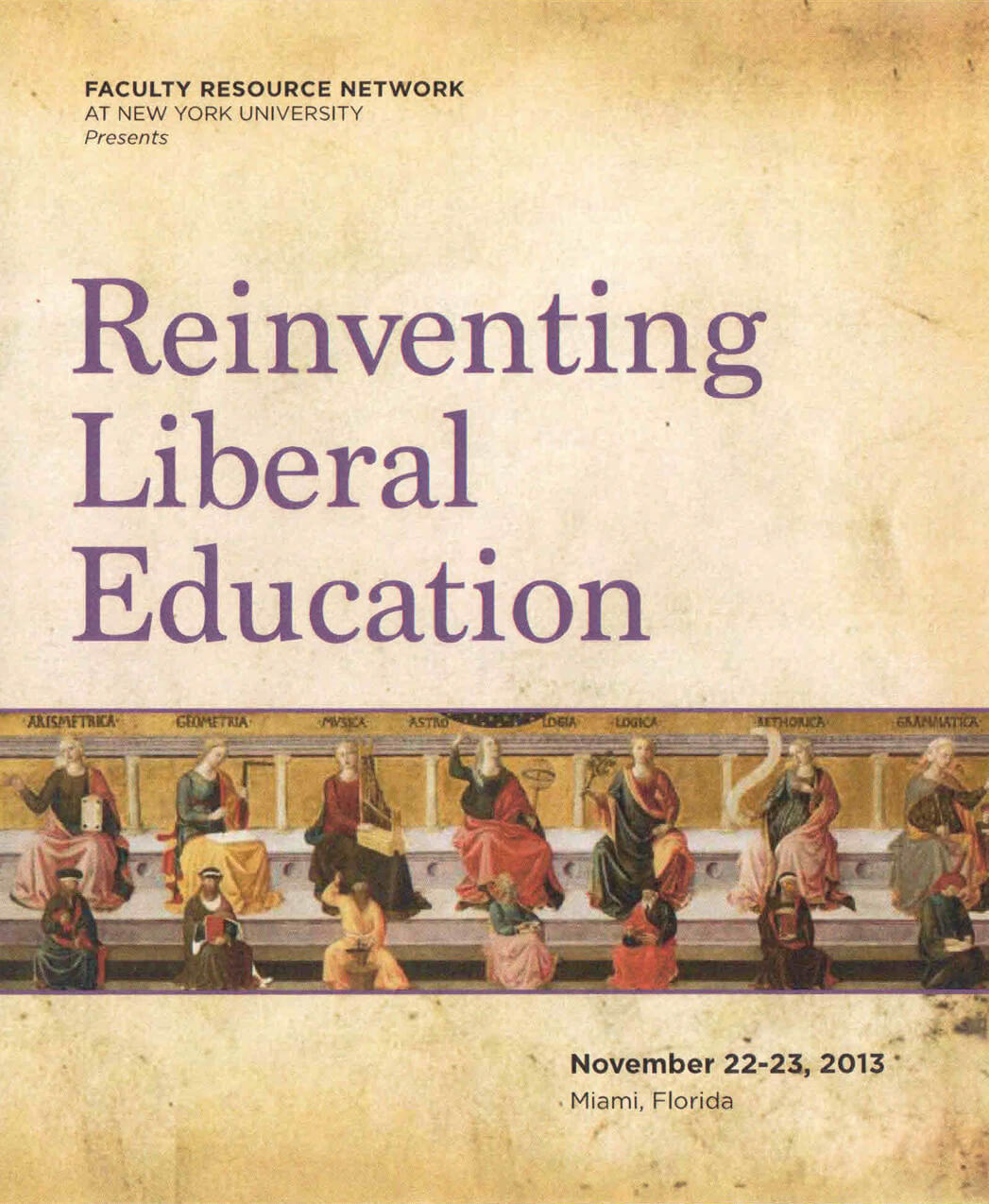University of Miami
Miami, Florida
Symposium Overview
How should we rethink and reshape liberal education for the 21st century? How can we maintain our commitment to the goals of liberal learning during a time of urgent economic and social pressures? How can we ensure that our colleges are providing the type of liberal education that empowers new graduates to become engaged participants in a complex global society? The emerging challenges of the 21st century—such as climate change and cross-cultural cooperation—will require creative … Show more
How should we rethink and reshape liberal education for the 21st century? How can we maintain our commitment to the goals of liberal learning during a time of urgent economic and social pressures? How can we ensure that our colleges are providing the type of liberal education that empowers new graduates to become engaged participants in a complex global society?
The emerging challenges of the 21st century—such as climate change and cross-cultural cooperation—will require creative and flexible thinking that involves the integration of multiple skills and perspectives. Undergraduate liberal education has traditionally developed students’ capacities of open-minded inquiry and critical thinking, while expanding their intellectual horizons through guided engagement with the arts, literature, mathematics, natural sciences, and social sciences.
In recent years, however, some critics have chastised liberal education as being an ivory tower indulgence that is losing its relevance in an increasingly competitive global economy. The recent economic crisis, coupled with pessimistic employment prospects for many college graduates, has generated pressure on colleges to increase their focus on vocational training. The rising costs of college tuition during a time of economic hardship have prompted more students and parents to scrutinize the monetary value of a college degree.
These countervailing trends of criticism and support have placed the liberal arts at a critical juncture. During this two-day symposium, through keynote presentations, plenary panels, and breakout sessions, we will have the opportunity to discuss insights and strategies for promoting the liberal arts.
In November 2013 faculty members and other representatives of Faculty Resource Network institutions addressed these questions and issues during a national symposium on “Reinventing Liberal Education,” hosted by University of Miami in Miami, Florida.

Spring 2014 Journal
Presentations
Presentations
Scott L. Newstok, Rhodes College
This article was adapted from an essay published in Inside Higher Ed on July 11, 2013.
Nicola Davis Bivens, Johnson C. Smith University
Anita Bledsoe-Gardner, Johnson C. Smith University
Dezette Johnson, Johnson C. Smith University
Eric Hartman, School of Leadership Studies, Kansas State University
Antoinette Hertel, St. Joseph’s College of New York
Janice L. Sumler-Edmond, Huston-Tillotson University
Aditi Pai, Spelman College
Jim Stenerson, Pace University
Michael Gaines, University of Miami
James P. Lawler, Pace University
Jeffrey Gaab, Farmingdale State College (SUNY)
Richard Vogel, Farmingdale State College
Evelyn Wortsman Deluty, Nassau Community College
James Blakeley, St. Joseph’s College
Thomas Petriano, St. Joseph’s College
Wendy C. Turgeon, St. Joseph’s College
Catharine R. Stimpson, New York University
Andrés Villagrá, Pace University
Alice E. Stephens, Clark Atlanta University
April D. Lundy, Clark Atlanta University
Rosalee Martin, Huston-Tillotson University
Pamela Waldron-Moore, Xavier University of Louisiana
Estelle L. Finley, Spelman College
Joanna Davis-Showell, Bethune-Cookman University
Leslie Baker-Kimmons, Chicago University
Deborah L. Freckleton, Bethune-Cookman University
Audrey Wolfson Latourette, Richard Stockton College of New Jersey

